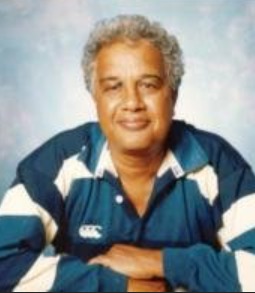MICHAEL ROBERTS – Thuppahi’s Blog

“Michael Roberts is a product of Oxford University UK. Nevertheless a humble, easy going individual” – by Joe Paiva
Source : thuppahis
MICHAEL ROBERTS was trained in history and the social sciences at Peradeniya University in Sri Lanka. This education was in the British empiricist tradition. His initial Ph.D work on agrarian policy took him into intellectual history as well as economic history and political economy. Once he began in the late 1960s to look at the social base of the nationalist movement in British Ceylon, his researches moved him into social history. That is, this involved a study of social mobility and elite formation. This shift was further promoted by his involvement in the interdisciplinary discussions of the Ceylon Studies Seminar at Peradeniya, in which he was key founder. Obeyesekere and friends at the Sociology Department also furthered this transformation.
Moreover, his oral history work among administrators and politicians in the late 1960s provided a foundation for his deepening engagement with the phenomenon of nationalism. These researches crystallised in the monumental four-volume Documents of the Ceylon National Congress (1977, Dept of national archives) and the edited anthology Collective Identities (Marga, 1979).
When he gained an Alexander von Humboldt Fellowship to Germany in 1975-76 and then secured a post at the Dept of Anthropology at the University of Adelaide, this process of transformation continued. Teaching anthropology meant studying the subject and gaining awareness of ethnographic field study methodology. Though he never pursued extensive field studies, his researches in effect involved the deciphering of the life ways of the middle classes of modern Sri Lanka. His Caste Conflict and Elite Formation The Rise of a Karava Elite in Sri Lanka, 1500-1931 (1982, CUP) is as much a product of Peradeniya as Adelaide, while People Inbetween (Sarvodaya, 1989) is about the middle classes of British Ceylon and the growth of Colombo city to hegemonic status.
When the ethnic conflict within Sri Lanka sharpened after 1983, Roberts’ familiarity with nationalist ideology stood him in good stead; while his anthropological awareness of human relations and inter-personal subjectivity also came in handy. Thus, his recent writings in the 1990s and 2000s have concentrated heavily on ethnic politics in Sri Lanka, both in the British period (for. e. g. studies of Anagarika Dharmapala’s thinking and the 1915 anti-Muslim pogrom) and in contemporary Lanka (Sinhala nationalist writing and the LTTE”s hero rituals). At the same time he has (a) undertaken an excursion into the pre-British era and analysed the political structure and ideological form of the state of Sinhalē in the period 1590s to 1815 and (b) ventured to analyse the politics of cricket in Sri Lanka as well as abroad (see Essaying Cricket, 2006 Vijitha Yapa Publications).
While Roberts can be described as a historical anthropologist, the fact remains that all his work engages the political relations of power and that he straddles the disciplines of Politics, Sociology, Anthropology and History.







